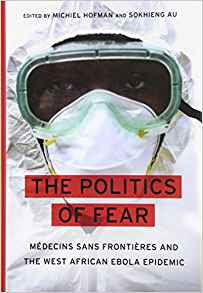The Politics of Fear
MSF has a “quasi-monopoly on the management of Ebola virus
epidemics in sub-Saharan Africa.” So wrote Mit Philips, author of one of the
essays. Good to know that the organization I work for has experience with this terrifying
illness.
Fear was a pervasive factor that slowed the response to this
deadly epidemic. The international medical and political communities were slow,
the local authorities were slow, the NGO’s were slow. Even MSF was slow. Fear
can do that. We are hard-wired to either Fight or Flight. Flight was a common
choice. MSF decided to fight. This collection of essays addresses many of the logistical
challenges and ethical dilemmas.
A common heart-wrenching dilemma was how to balance access to care
with quality of care. The available infrastructure and staff resources were
limited and hard choices were made. Likely many of the survivors and their medical caregivers harbour a conflicting legacy of emotions about the choices. Every situation
was unique. No one ever wants to make these choices.
MSF made the unprecedented step to request international
military support. Wow, it was that bad!
MSF made the difficult decision to allow treatment with
experimental drugs and concluded that given the extreme mortality, using these drugs made good ethical sense. MSF made intelligent decisions of how to use these medications.
MSF didn’t need to wait long for the next outbreak to
challenge their resources. The 2018 outbreak in the Democratic Republic of Congo continues
to rage and the politics of fear continue to stymie their efforts.


Comments
Post a Comment